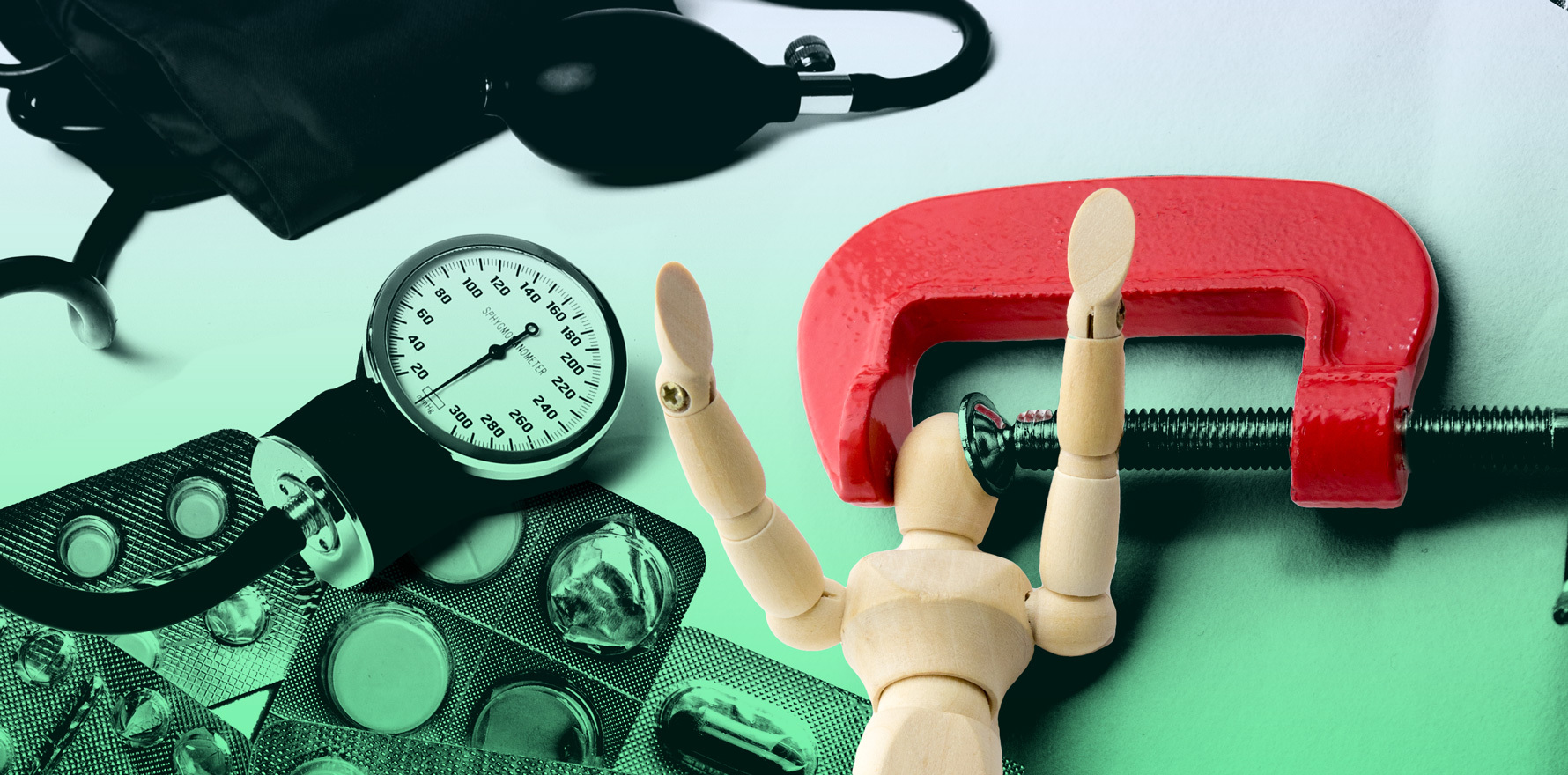A new meta-analysis reveals the range of BP medications that help prevent migraines.
More blood pressure medications than currently recommended help prevent migraines, new research suggests.
The Australian analysis of 50 trials including more than 4300 participants found that a wide range of blood pressure-lowering medication reduced the number of headache days per month by about one day compared with placebo.
Researchers found that all classes of blood pressure-lowering medications – alpha-blockers, angiotensin II receptor blockers, angiotensin-converting enzyme inhibitors, beta-blockers and calcium channel blockers – had the effect of reducing the number of headache days per month.
“Monthly headache days were fewer in all classes compared to placebo, and this was statistically significant for all but one class: alpha-blockers,” they wrote in Cephalalgia.
“Among people with episodic migraine, a broader number of blood pressure-lowering medication classes and drugs reduce headache frequency than those currently included in treatment guidelines.”
Joint principal investigator, Dr Cheryl Carcel from The George Institute and the University of NSW, said the analysis found that almost all blood pressure medications lowered the incidence of migraines, but that was not reflected in current clinical guidelines.
“This study shows that common BP medicines, which GPs are comfortable prescribing, can be an important preventative measure for patients with migraine or severe headache episodes,” Dr Carcel said.
Commenting on the study, neurologist Associate Professor Richard Stark from Alfred Hospital and Monash University said some antihypertensives seemed to be more effective at preventing migraine than others, even though they were not as effective at reducing blood pressure.
“It raises the question of whether it is truly just a blood pressure lowering effect in itself, or whether it’s something that’s intrinsic to each of the individual medications,” said the immediate past president of the Australian and New Zealand Headache Society.
“There are medications that seem to be more effective at reducing blood pressure than others, but they’re not more effective at dealing with migraine than others.
“So it’s probably a bit more complicated than just saying, dropping your blood pressure helps.
Neurologists commonly prescribed beta blockers for migraine prevention, such as the “old-fashioned” beta blocker propranolol, he said.
However, propranolol could aggravate asthma. “It immediately rules out using propranolol for people who have got significant asthma.”
Professor Stark said many patients with migraine who responded to antihypertensive medications did not have high blood pressure.
Patients with low blood pressure were still able to take blood pressure-lowering medications to prevent migraine.
“My clinical experience is that there are people who have blood pressures that are on the low side of normal who are able to tolerate them and get benefit from them.
“It certainly doesn’t require the patient to have unusually high blood pressure for them to be effective.”
However, he did suggest a drug such as candesartan should be taken at night for migraine.
“It’s less likely to be troublesome [in giving] you low blood pressure if you’re asleep. You’re not going to get lightheaded from jumping up too much. Fortunately, many of the people that we’re treating this way are young and are able to sleep through the night. They don’t need to get up to the bathroom or anything of that sort.”
Overall, preventive migraine medication worked in a range of different ways, Professor Stark suggested.
Just as migraines can be triggered in different ways for each patient – through diet, stress, hormones or sleep patterns – medications may be working differently for each individual.
“The triggers are not the same from one person to another. And presumably, what they’re doing in common is that they are somehow stirring up this overactive circuitry in the brain.
“Likewise, all the preventive agents work in slightly different ways, but maybe they too are damping down the same circuitry but from different angles.”


